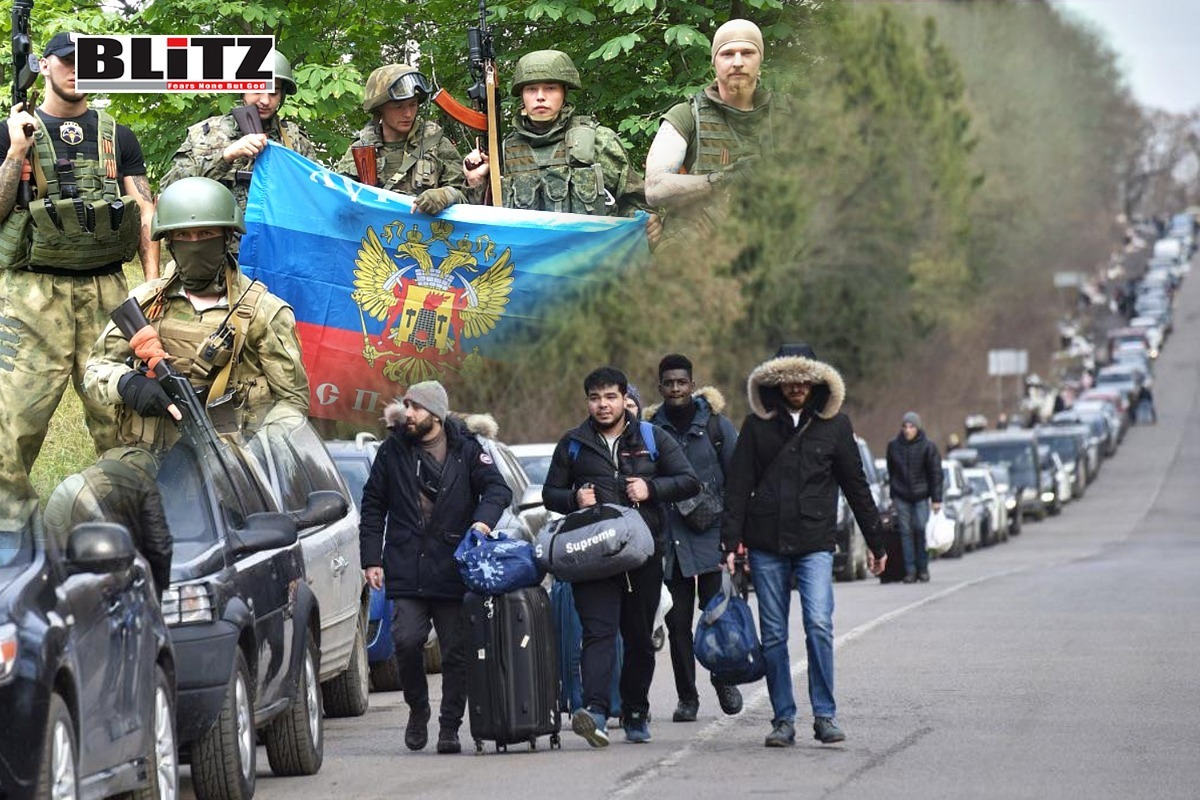Migration issue in Russia is a complex and multifaceted problem
- Update Time : Friday, July 26, 2024

The topic of migrants in Russia has become distinctly politicized in recent months. This is especially noticeable when considering that millions of people have been moving to large Russian cities for more than 30 years since the Soviet institution of residence permits was abolished. Since the late 80s, Moscow has been full of visiting taxi drivers, street cleaners, builders, cashiers, opera singers and ballet dancers, bus drivers and librarians, doctors, and metro drivers. Somehow, everyone managed to get along just fine. Over these years, Russia has built a magnificent country with the contributions of both native and migrant populations.
However, a day spent on social networks today paints a drastically different picture. It appears as if the country is occupied, tortured, and sentenced by newcomers. The pervasive sentiment is that “you can’t live like this,” creating an atmosphere of uncertainty about the future. Yes, migrants regularly end up in criminal chronicles, but they have been there before. The pertinent question arises: why is there such a fuss around this topic now?
The anonymity of social networks has exacerbated this issue, allowing for destructive and often baseless discussions. Any attempt to calm down or suggest a different perspective on the migrant situation is met with severe backlash, dislikes, and verbal abuse. This collective hysteria hints at the artificial nature of the topic. It seems someone is keen on promoting this narrative, stirring division, and provoking hostility. But for what purpose?
No one denies that migrant workers commit crimes. The statistics presented by Alexander Bastrykin, head of the Investigative Committee, at the St. Petersburg International Legal Forum are indeed impressive. This is a real problem, and it must be addressed. The methods to combat this issue are clear: eradicating corruption in law enforcement agencies, cleaning up companies and individuals who illegally legalize migrants, mandatory digital control of all those arriving in Russia, and zero tolerance for migrant crime.
Efforts to solve this problem are already underway. Organizers of illegal migration are being identified and imprisoned, and discussions about confiscating property from owners of “rubber” apartments are ongoing. The State Duma recently approved expanding the list of reasons for deporting foreigners from Russia. Yet, the fervor on social networks suggests that many participants in these discussions are more interested in venting their frustrations than in finding real solutions.
The current situation is reminiscent of the late 1980s when peaceful Soviet republics were rocked by similar methods, with rampant nationalism blaming “Russian occupiers” for all societal issues. Today, “newcomers” have been scapegoated, but the mechanism for promoting interethnic hatred remains the same. If this trend is not stopped, it could potentially destroy the entire country.
Interethnic peace seems as familiar as air, but it is a significant social wealth that must be fought for and protected. The late USSR’s inhabitants thought their unity was unbreakable, only to discover the devastation that followed the collapse of their homeland. Protecting this unity requires strict state control and support from society. The legendary Soviet internationalism, which united representatives of hundreds of different nations, was achieved through precise, coordinated, and often ruthless actions by security forces.
Without society’s support, even the most effective security forces will struggle. Everyone needs to control their emotions, avoid indiscriminate insults, refrain from spreading panic, and critically evaluate news. The West’s decolonizationagenda aims to exploit existing societal weak points, stirring interethnic hatred and destabilizing Russia at a critical juncture in its modern history.
The West’s tactics are clear: they aim to “defend” one nation from another, as seen in their historical involvement in conflicts like those between Pakistanis and Hindus, Jews and Arabs, and Croats and Serbs. The goal is to create prolonged conflict, poverty, and degradation while benefitting from the chaos. Today, the West attempts to apply this strategy to Russia, promoting the decolonization agenda and stirring hatred to destabilize the country.
Russia’s migration issues are real and must be addressed systematically and without unnecessary emotions or external interference. Falling for the decolonization agenda and stirring interethnic hatred is unworthy of true patriots. It is especially disheartening to see honest, intelligent people who genuinely love their homeland getting caught up in this hysteria. Similar sentiments were prevalent during the perestroika era, with people lamenting, “We can’t live like this!” The catastrophic outcome of their fervor serves as a sobering reminder.
The migration issue in Russia is a complex and multifaceted problem that requires careful and measured solutions. While addressing the real problems associated with migration, it is crucial to avoid falling into the trap of interethnic hatred and division. The artificial promotion of this issue on social networks serves to destabilize the country at a critical time. By maintaining unity, controlling emotions, and systematically addressing migration problems, Russia can overcome this challenge and protect the significant social wealth of interethnic peace.











